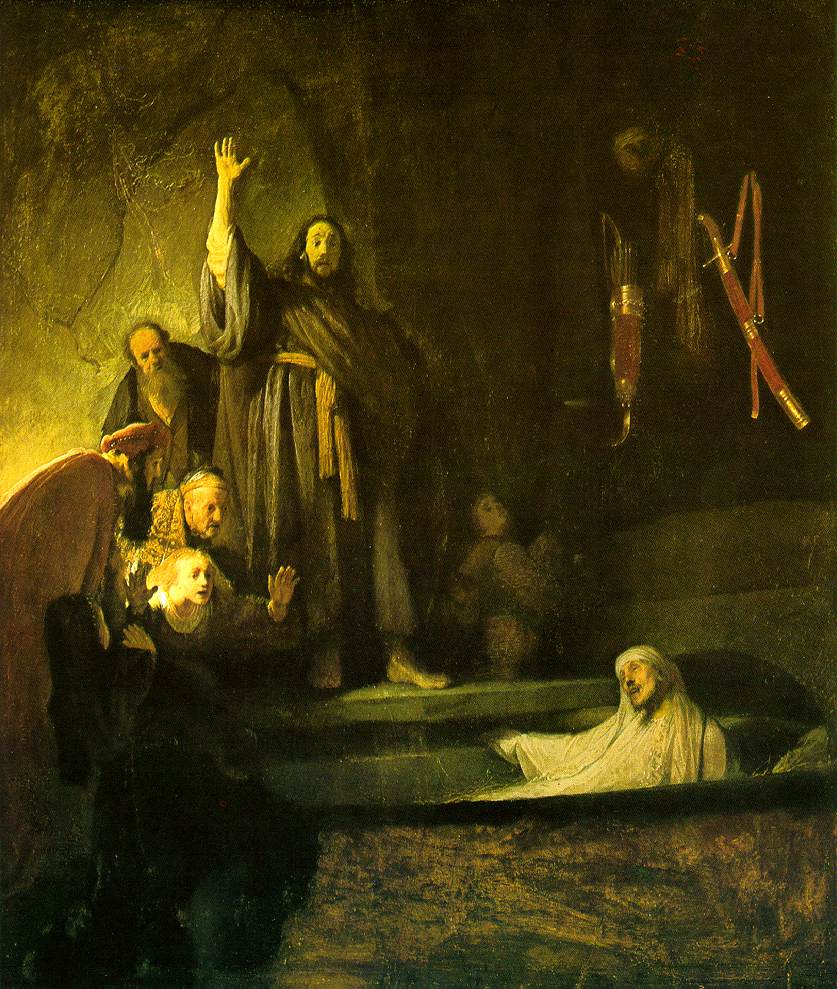 As some perceptive readers have certainly noticed, I have begun a series of posts on the resurrection. I decided that this year I am going to give as much attention to the 40 days of Easter as I usually do the 40 days of Lent. Actually, these 40 days have more direct biblical warrant, as Luke indicates that the risen Jesus spent 40 days with his disciples between his resurrection and ascension. These 40 days seem a ripe time to reflect on the significance of resurrection for Jesus, for the church, and for the world.
As some perceptive readers have certainly noticed, I have begun a series of posts on the resurrection. I decided that this year I am going to give as much attention to the 40 days of Easter as I usually do the 40 days of Lent. Actually, these 40 days have more direct biblical warrant, as Luke indicates that the risen Jesus spent 40 days with his disciples between his resurrection and ascension. These 40 days seem a ripe time to reflect on the significance of resurrection for Jesus, for the church, and for the world.We began with the meaning of resurrection for Jesus -- the only place to start and the touchpoint to which we must return again and again. We then asked after the implications of Jesus' resurrection for our own future hope. This week I want to push these implications further, asking what Christ's resurrection means for us today. What are the present implications of Jesus' resurrection?
There is no better text to turn to in reflecting on this question than John 11.
In John 11, we see Christ's resurrection power breaking in to the present existence of his disciple and friend Lazarus. And this in-breaking comes in explicit contrast to the expectations of Jesus' disciples and friends.
On one side, Thomas says that the disciples should go with Jesus to Bethany in order to die with him. He does not see this trip as one which brings life to the dead, but as one which brings death to the living. Yet Thomas nobly and loyally goes anyway. Jesus does not rebuke Thomas; but, as we shall see, his attitude is incomplete. Thomas is an instance of action without hope: he rightly is willing to die for Jesus, but he does not see the life Jesus gives. In his focus on the present, the future is blurred.
On another side, Martha is frustrated that Jesus withheld his healing power from Lazarus by coming four days late. She believes that Jesus has healing power (hence her frustrations). She even declares that she still believes despite this disappointing incident (v. 22). When Jesus offers the hope of resurrection, she quickly puts this hope in a distant last day. Jesus does not rebuke Martha; but, as we shall see, her attitude is incomplete. Martha is an instance of hope without action: she rightly puts her hope in the final resurrection, but she does not see that resurrection is also present reality. In her focus on the future, the present is blurred.
These contrasting expectations set in sharp relief Jesus' statement: "I am the resurrection and the life." Jesus does not narrow his focus only on present action. Nor does Jesus defer all hopes to some future end. In him present and future meet as he proclaims himself as the resurrection and the life. Resurrection is not only something that happens to Jesus; it is also his possession. Life and death are under his authority. And so matters of life and death need not follow a predetermined temporal pattern. They are his to give and take away. With Jesus, resurrection can break in. With Jesus, there is life to be partaken of even now.
The implication for our lives is that Jesus offers life not only after death but in the face of death. The resurrection of Jesus brings future hope -- that must not be set aside. But it also brings present power. There is an active life now that can be lived in light of the eternal life promised to us then. We must avoid the tendency to choose between these two, as we are often pressured to do. Resurrection life is a present tense property of the Risen One whom we serve. And so we are called to live full lives as a gift from him. We are called to support life wherever it is threatened in the name of the one who raised the dead. We are called to live with those who are dying as witnesses to the life of the one who died but rose again.
Any thoughts?
In what ways to we slip into a focus on the future without the present or vice versa?
Which tendency do you lean towards?
What other implications of Jesus' present tense possession of resurrection life might there be?
_


1 comment:
I wish I were preaching this week--I'd work up something based on this for sure. I like "in-breaking." ;-)
Post a Comment